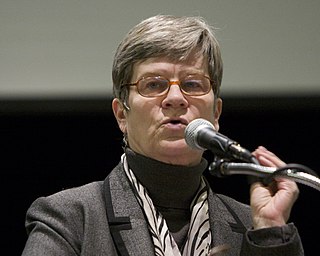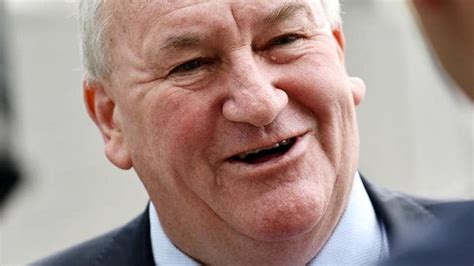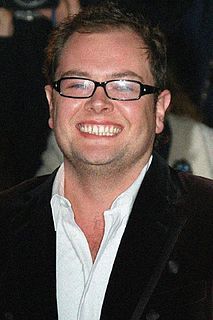A Quote by Kathleen Hall Jamieson
Network news accustoms audiences to assertion not argument. Over time, it reinforces the notion that politics is about visceral identification and apposition, not complex problems and their solutions. ... sound bites aren't very helpful. They can tell a voter what a candidate believes, but not why. And many issues are too complex to be freeze dried into a slogan and a smile. ... What's lost in a world in which everything's an ad? Perhaps the country that created the assembly line has simply found a more efficient way to do politics.
Quote Topics
About
Ad
Argument
Assembly
Assembly Line
Assertion
Audiences
Believes
Bites
Candidate
Complex
Complex Problems
Country
Created
Dried
Efficient
Everything
Found
Freeze
Helpful
Identification
Issues
Line
Lost
Many
More
Network
News
Notion
Over
Perhaps
Politics
Problems
Simply
Slogan
Smile
Solutions
Sound
Sound Bite
Sound Bites
Tell
Time
Too
Very
Visceral
Voter
Way
Which
Why
World
Related Quotes
Complexity has and will maintain a strong fascination for many people. It is true that we live in a complex world and strive to solve inherently complex problems, which often do require complex mechanisms. However, this should not diminish our desire for elegant solutions, which convince by their clarity and effectiveness. Simple, elegant solutions are more effective, but they are harder to find than complex ones, and they require more time, which we too often believe to be unaffordable
As many critics of religion have pointed out, the notion of a creator poses an immediate problem of an infinite regress. If God created the universe, what created God? To say that God, by definition, is uncreated simply begs the question. Any being capable of creating a complex world promises to be very complex himself. As the biologist Richard Dawkins has observed repeatedly, the only natural process we know of that could produce a being capable of designing things is evolution.
It's a very complex network of genes making products which go into the nucleus and turn on other genes. And, in fact, you find a continuing network of processes going on in a very complex way by which genes are subject to these continual adjustments, as you might say - the computer programmer deciding which genes ultimately will work.
Today there are a huge number of think tanks working on poverty-related issues; there are books written on the topic; and university centers being created to study poverty. But, at the same time, the media has a terribly hard time with this issue; it's very hard to convince editors and publishers to devote resources to complex investigations of the lives of America's poor. And, as a result, too often poverty is portrayed in stereotypes, in sound bites, in a few pat images rather than in its full Technicolor complexity and diversity.
Perhaps randomness is not merely an adequate description for complex causes that we cannot specify. Perhaps the world really works this way, and many events are uncaused in any conventional sense of the word. Perhaps our gut feeling that it cannot be so reflects only our hopes and prejudices, our desperate striving to make sense of a complex and confusing world, and not the ways of nature.
Now I've come to such a mixed culture: America, Europe, South America, Africa. And the politics are changing everywhere all the time and becoming even more unpredictable. There's no such thing as "fixed" culture. China is also becoming more global. Its problems are becoming international problems, becoming German problems, becoming American problems. Nothing is clear-cut. Perhaps I'll find my way - or get totally lost.
It is much easier to make intellectual messes than it is to clarify complicated issues, especially when real solutions would challenge the status quo and require much careful thought across many fields of knowledge. Problems of climatic change, biotic impoverishment, population growth, and the choices to be made by various technologies and the transition to a sustainable and decent society with an economy that works over the long-term are difficult, complex, and intertwined problems with many possible answers.
It was clear to me that the White House's solemn atmosphere would not civilize Trump. But the merciless nepotism with which he conducts politics, in which he places himself and his family above the law, I wouldn't have considered that possible. And on top of that there is this reduction of complex political decisions to 140 characters. When it comes to a U.S. president, I consider the reduction of politics to a tweet to be truly dangerous. Trump is a risk to his country and the entire world.


































